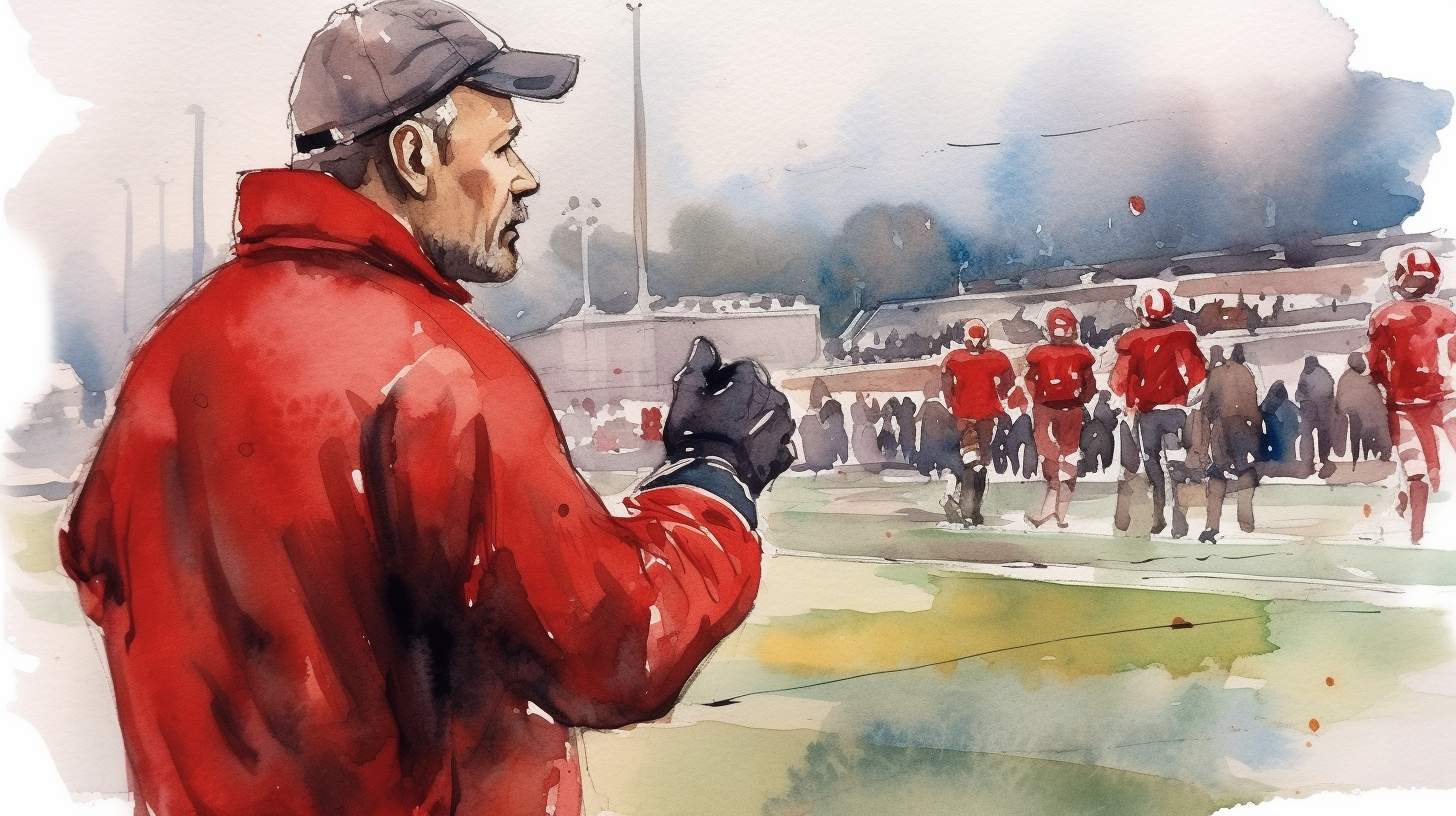Legendary football coach Lou Holtz, who, among other achievements, led the Notre Dame team to a national championship, is known for his simple yet wise “Do Right” leadership philosophy with three straightforward rules: do what is right, give your best effort, and show people you care.
Holtz’s Team-First Approach
During his impressive career, Holtz used these principles to earn the trust and buy-in of his players and staff. He recognized that games aren’t won by strategy alone but by character and team spirit. Holtz insisted his teams embrace integrity and excel to their potential.
The mid-1980s were a rough patch for Notre Dame football. After years as a powerhouse, the program had fallen on hard times. So, in 1986, Lou Holtz was brought in to turn things around.
Right away, Holtz wanted to emphasize team spirit over individual accomplishments. One of his first acts was removing the players’ names from the backs of their jerseys. From then on, the Fighting Irish would win and lose as one, not as a collection of individual stars.
That first year under Holtz was still a struggle, with the team going 5–6. But there were signs of progress. Five of those six losses were close games that could have gone either way. And in the rivalry game against USC, Notre Dame showed their grit. Trailing by 17 points in the 4th quarter, the Irish rallied for a thrilling last-minute 38–37 victory.
It was a momentum-building win for Holtz and Notre Dame. Though the rebuild took time, Holtz would eventually return the program to championship glory. But that USC comeback showed the Fighting Irish were ready to battle again.
Holtz showed that X’s and O’s and drills alone don’t cut it. Intangibles like discipline, sportsmanship, and camaraderie were crucial for unleashing his team’s full ability. His knack for connecting with players as people, not just helmeted athletes, built trust and devotion. This “Do Right” mindset formed the bedrock of Holtz’s Hall of Fame career.
The importance of trust and integrity
Holtz believes trust is everything in relationships. It can only grow through reliability and moral behavior. In the same way, as engineering managers, we must earn our team’s trust through dependability and integrity.
For example, making realistic promises to your team and then delivering, time after time, is huge. If you frequently overcommit and underdeliver, they’ll stop believing you. They need confidence you’ll come through.
Also, be upfront about any mistakes or failures, including your own. Don’t try to bury them or pass the buck. Owning up earns respect. Openly analyzing errors allows everyone to learn and builds trust.
Sometimes, the path of least resistance isn’t the right long-term choice. Resist quick fixes or workarounds that cut ethical corners. Sticking to your principles in tough spots proves your reliability.
Making hard calls with integrity is critical, too — whether holding someone accountable or giving candid feedback. You must do what’s right for the team, even if it is unpopular. People will appreciate directness over hedging.
By always putting ethical behavior first, you show your team matters more than taking the easy way. This builds trust that drives higher performance.
Striving for excellence
As Holtz encouraged, we should help our teams to continuously build their skills and talents.
As usual, the best way to lead is by example. Your team notices if you prioritize learning. Staying up-to-date on the latest languages, frameworks, and best practices shows you walk the talk. Sharing what you pick up motivates others.
Provide growth opportunities, too — conferences, lunch-and-learns, courses, etc. Make time for self-study during work. Bring in experts for Q&A.
Have regular one-on-ones to understand individuals’ strengths and interests. Then, tailor personal development plans. Someone may want to improve soft skills, while another needs technical training. Fostering targeted growth keeps people engaged.
Give candid but constructive feedback often, even if uncomfortable. Don’t just criticize — offer specific guidance to improve. Check in to see if people are applying your advice.
Celebrate growth in progress, not just achievements. Praise effort and acquiring new skills, not just outcomes.
Make the team feel invested in each other’s growth. Encourage mentoring, collaboration, and sharing knowledge. Together, pursue excellence.
Leading with empathy and encouragement
Take time to show people you care. Have regular one-on-ones to learn what makes each person on your team tick — their goals, struggles, motivations, and concerns. Ask thoughtful questions, listen closely, and build a connection.
Keep an eye on your team’s emotional state. Check-in if someone seems stressed or disengaged. See how you can accommodate their needs and provide support. Never underestimate the power of a sincere “thank you.” Appreciate people’s contributions, no matter how small. Recognition motivates.
Celebrate wins and milestones together — enjoy hitting goals and launching releases. And organize fun offsite activities periodically to lighten up and strengthen relationships. In stressful times, offer encouragement, lend a sympathetic ear, and remind people tough moments pass.
Overall, leading with heart, celebrating victories, and uplifting your team drives greater loyalty and engagement. An engineering manager who connects with their team members as human beings, not just engineers, will see much more success. Make empathy and care central to your leadership.
Holtz’s Keys to Inspiring Teams
Lou Holtz’s “Do Right” philosophy exemplifies that technical expertise alone does not make an effective engineering leader. Soft skills like integrity, empathy, and the ability to inspire teams are equally critical.
The whole philosophy boils down to three simple questions that people you work with will have to answer for themselves:
- Can I trust you?
- Do you care about me?
- Are you giving your best effort?
By implementing Lou Holtz’s three timeless principles, we can become more influential engineering leaders who bring out the best in our teams. This “Do Right” mindset is your playbook for building cohesive, empowered teams that deliver meaningful work.
Originally published on Medium.com






